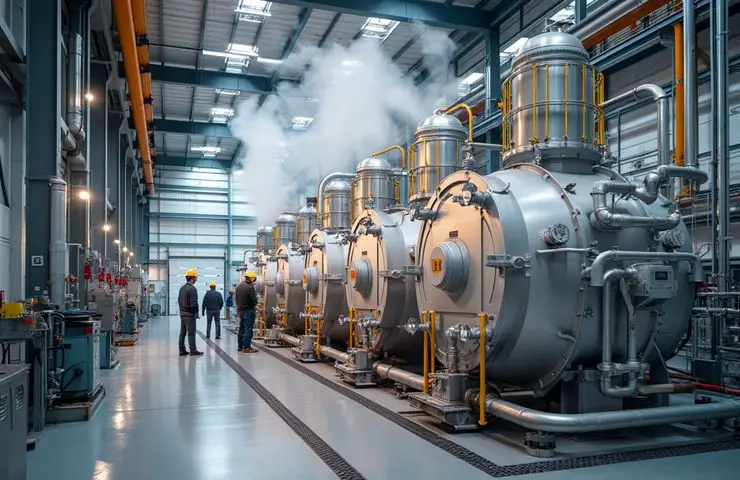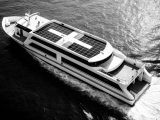
thyssenkrupp nucera Opens SOEC Electrolysis Plant to Boost Green Hydrogen Production
May 28, 2025Big things are happening in the world of green hydrogen. On May 27, 2025, thyssenkrupp nucera AG & Co. KGaA teamed up with Germany’s Fraunhofer Institute for Ceramic Technologies and Systems (IKTS) to open the doors to their very first pilot facility for producing Solid Oxide Electrolysis Cell (SOEC) stacks. The new site is up and running in Arnstadt, right in the heart of Thuringia, one of Germany’s long-standing industrial strongholds.
This new plant represents a major leap toward bringing large-scale, cost-effective hydrogen production to life. The partnership combines thyssenkrupp nucera’s strengths in alkaline electrolysis technology with Fraunhofer IKTS’s deep expertise—over 15 years—in high-temperature electrolysis research. In short, it’s a strategic partnership making serious moves.
A Giant Step Toward Industrial Decarbonization
This launch couldn’t be more in sync with the European Union’s big-picture climate game plan. Back in 2020, the EU rolled out its Hydrogen Strategy, setting sights on 40 gigawatts of electrolyzer capacity by 2030. Additionally, the Arnstadt pilot project has secured funding support from the European Union [5], further underscoring the strategic importance of SOEC technology. SOEC technology is particularly exciting because it doesn’t just use electricity—it taps into waste heat from industrial processes, achieving electricity consumption savings in the range of 20-30% compared to conventional systems [2]. Running at sizzling temperatures between 700 and 900°C, these systems wring out every drop of energy possible from the heat that’s already there.
Fraunhofer’s SOEC approach uses ceramic materials to split water vapor into hydrogen and oxygen, with help from both electricity and thermal energy. And thanks to specially designed chromium-iron interconnectors, these stacks can take the heat—literally—without falling apart or corroding over time. That adds up to more durability, more uptime, and better bang for every energy buck.
Business Implications Could Be Significant
This isn’t just about high-tech lab experiments—it’s about real-world change. The Arnstadt facility marks a turning point in efforts to cut hydrogen costs so that it can realistically compete in heavy-duty industries. thyssenkrupp nucera sees this as a pathway toward commercializing SOEC in large-scale plants and achieving price points that could finally make hydrogen a go-to fuel for big players in sectors like steel manufacturing.
Why does that matter? Because industries like steel churn out massive amounts of CO₂—and switching to cleaner fuels like hydrogen can dramatically help reduce those emissions.
Regional Significance and Future Prospects
Beyond the obvious environmental gains, the facility breathes new life into Arnstadt’s industrial base. Once a key site during East Germany’s manufacturing boom, the area is reinventing itself as a hub for sustainable tech and industrial decarbonization. It’s a win-win—driving innovation while bringing fresh economic opportunities to a region eager for long-term growth.
And this is just the beginning. Using the pilot’s success as a launchpad, thyssenkrupp and Fraunhofer IKTS are already looking ahead. They plan to scale up and automate production significantly by 2027, aiming for full gigawatt-scale SOEC manufacturing. Even better, their SOEC stacks are built to play nicely with today’s 100MW alkaline electrolyzer setups—so expanding into existing systems should be relatively seamless for industry players.
As one energy analyst put it, “This isn’t just a milestone—it’s a signal flare for the future. If they can hit ambitious cost targets, this tech could totally reshape the landscape for cleaner industries.”
In the bigger picture, projects like this one in Arnstadt aren’t just isolated wins—they’re setting the tone for what’s to come. By pushing the boundaries of efficient hydrogen production and creating real pathways for commercial use, these initiatives are paving the way for quicker adoption across industries and entire regions eager to join the clean energy revolution.
About thyssenkrupp nucera
Based in Germany, thyssenkrupp nucera is at the forefront of electrolysis innovation. They specialize in large-scale alkaline water electrolysis systems designed for industrial use, playing a pivotal role in making green hydrogen a viable and competitive option in the global shift toward sustainability and hydrogen infrastructure development.



 With over 15 years of reporting hydrogen news, we are your premier source for the latest updates and insights in hydrogen and renewable energy.
With over 15 years of reporting hydrogen news, we are your premier source for the latest updates and insights in hydrogen and renewable energy.